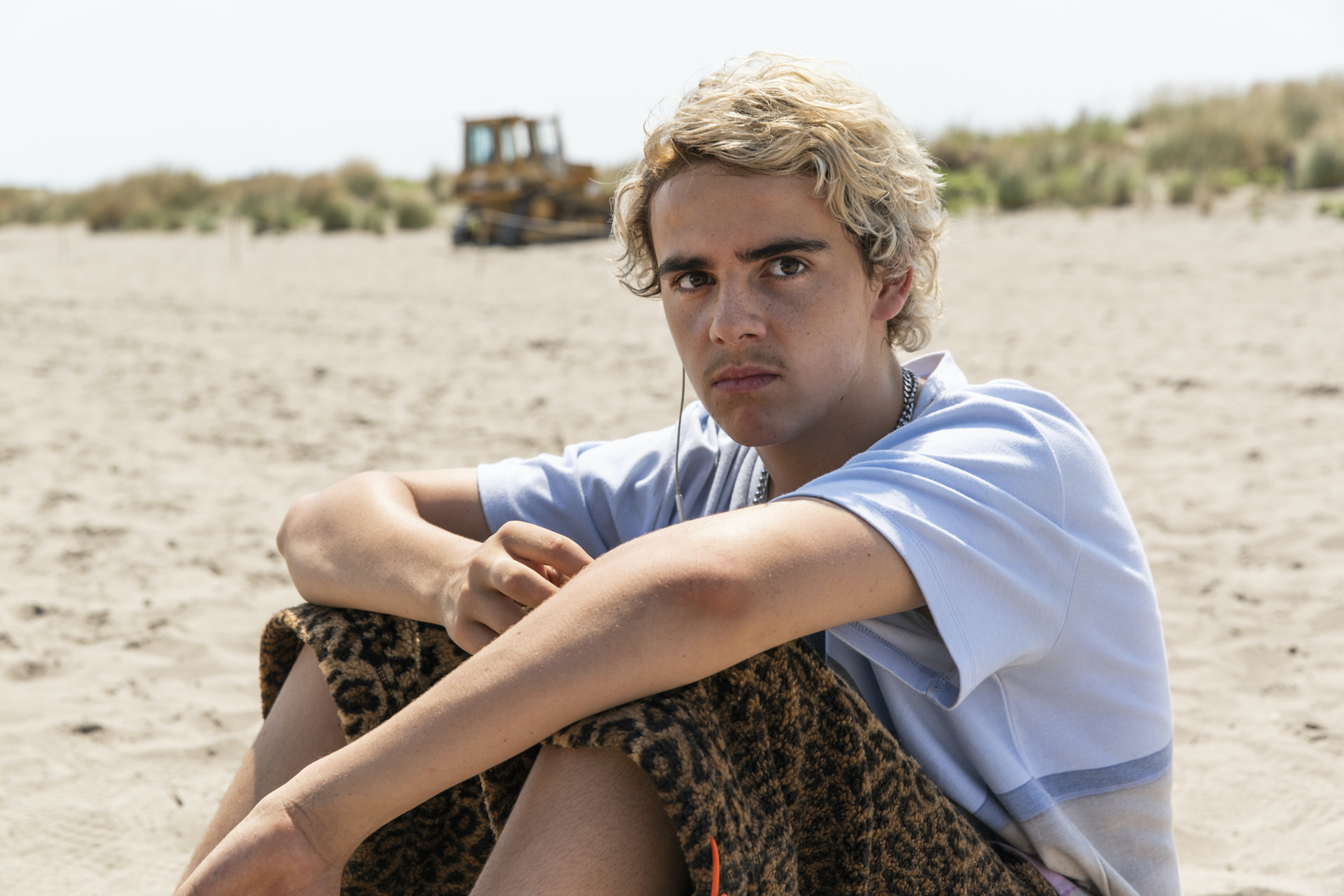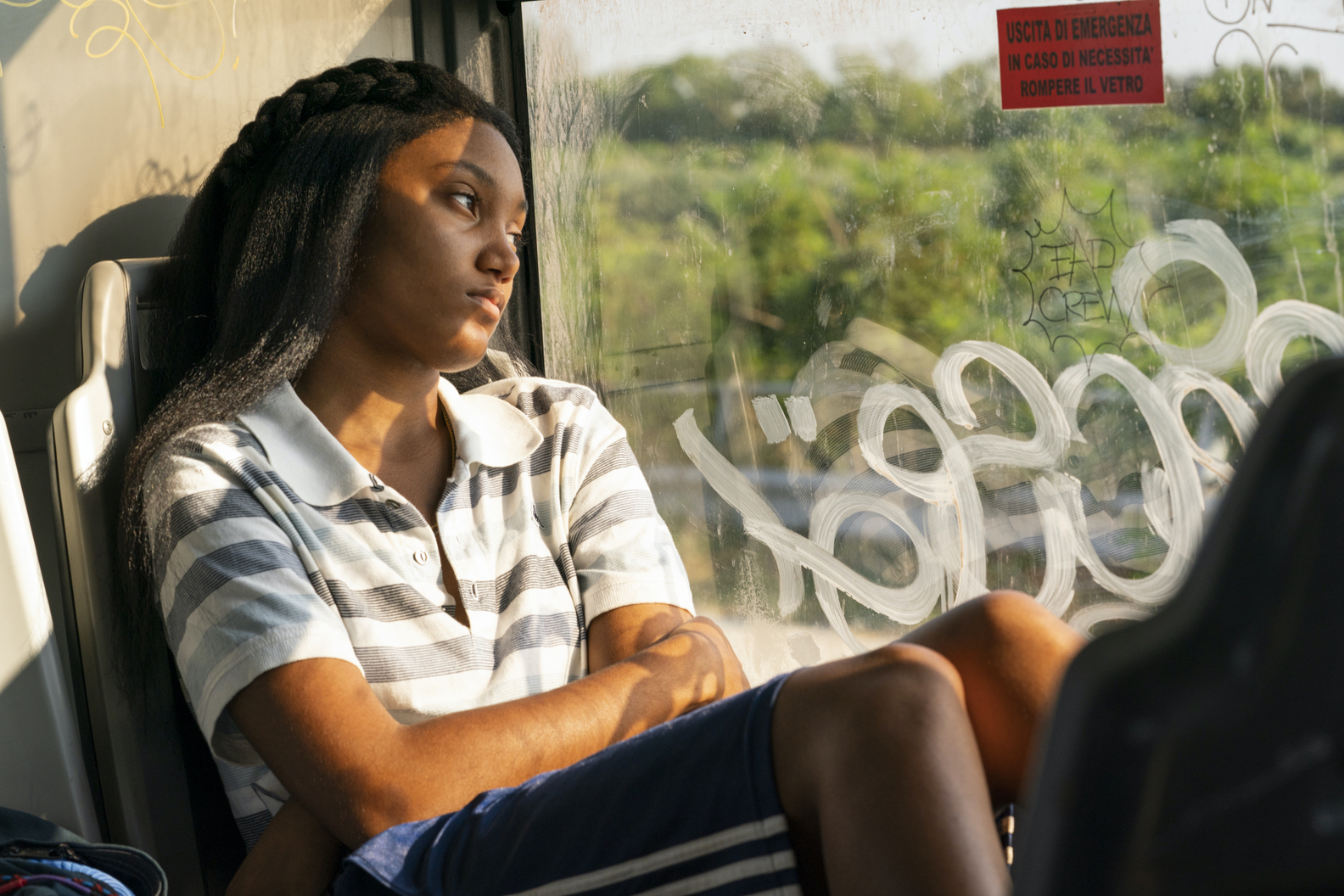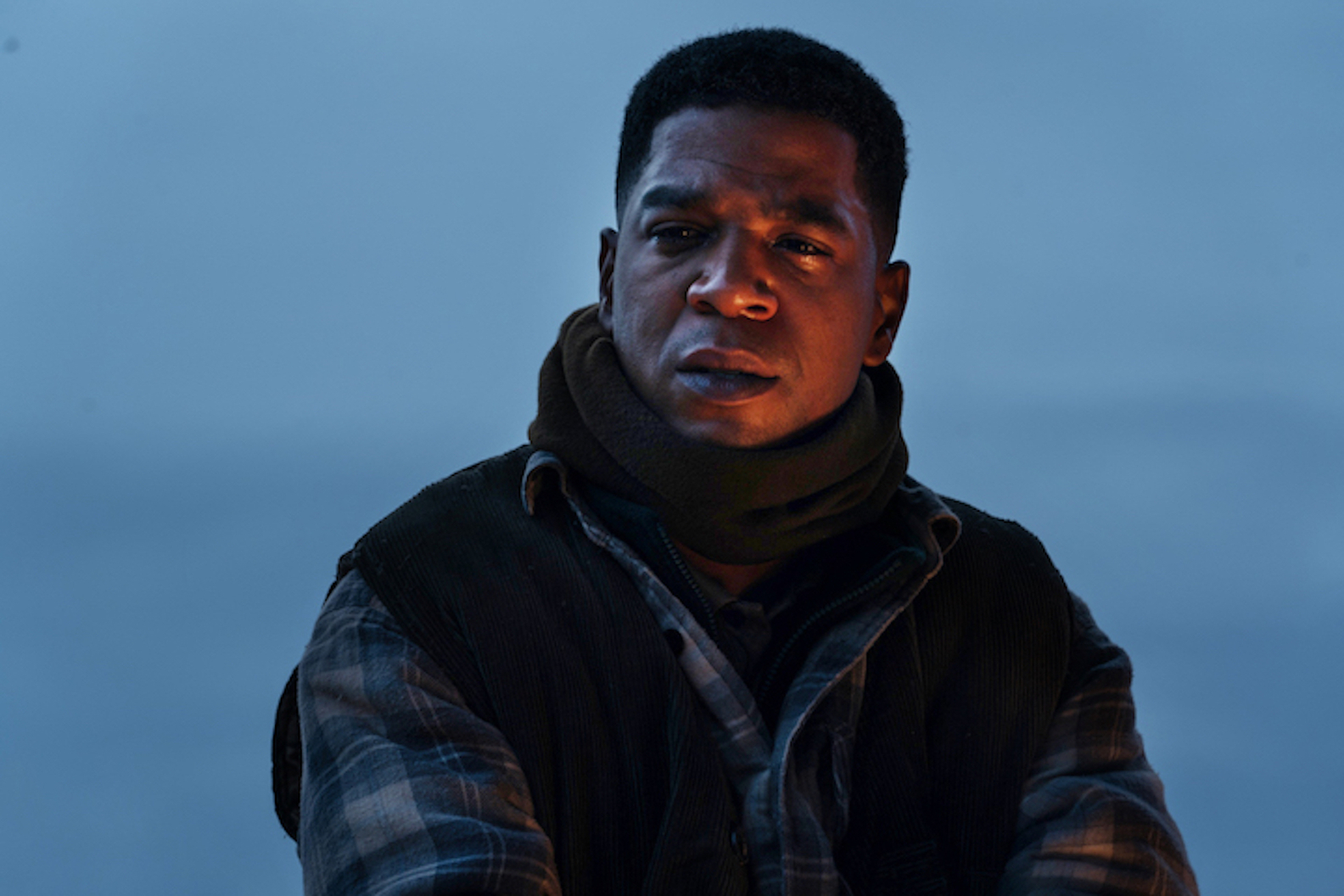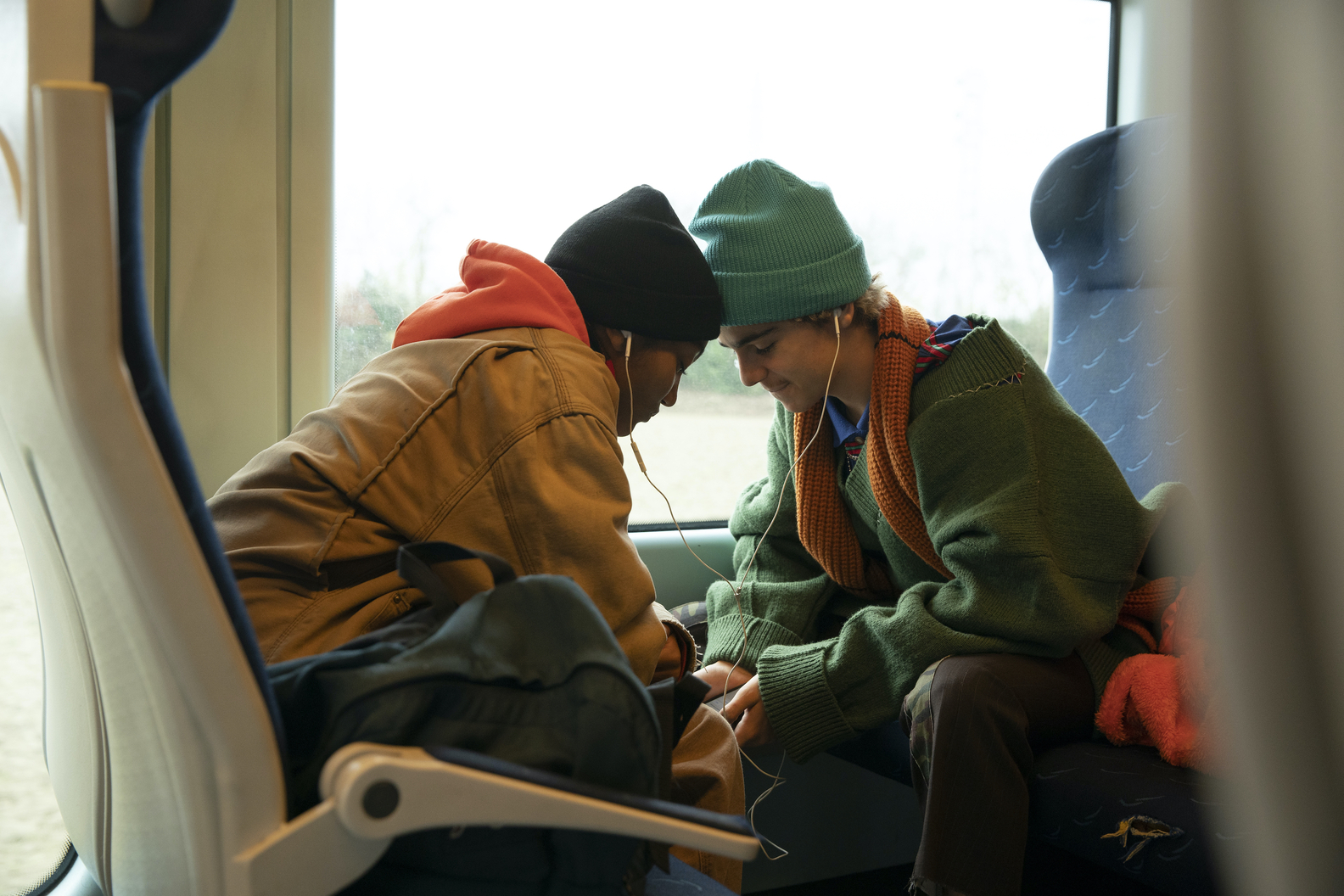In early September, I had the opportunity to watch the first half of We Are Who We Are and as I state in my review, I was blown away by it. Luca Guadagnino brought us a project that was explosive, meditative, and thought-provoking with a soundtrack that moves you physically, and emotionally.
It’s been a day since the interview before I began transcribing the article because frankly, I can’t believe I had the amazing opportunity to speak to Luca Guadagnino over Zoom. Keep in mind, Luca spoke very highly of the review so I stumble and stutter a bit more than usual. Anxiety can be tricky. I also have minor techincal difficulties as in, I forgot to start my webcam as I was invited into the waiting room.
Here is that interview, and warning, there are spoilers for the finale.
Luca: Andres, where are you?
Andres: Oh right, let me start the video.
Luca: Hey!
Andres: Hello.
Luca: Andres, I want to thank you for your beautiful pieces of writing on my work that has been very inspiring to me.
Andres: Wow. Thank you. That means a lot to me. So I saw the show not that long ago, and very quickly as you actually read, I was blown away by it. It struck a chord with me, in many ways. But to start off simple, how come you decided to bring Timothée [Chalamet] and Armie [Hammer] on for a cameo?
Luca: Well, they came to see me at different times during the shoot. And many friends came to see me, and many times I ask my friends to be in front of the camera. Including Tim and Armie. Because it’s fun, and it’s something that stays forever and I love that that because I love having long-lasting relationships.

Andres: For sure, I recently read – I believe it was the GQ profile that Jack Dylan Glazer watched Call Me By Your Name while he was here in Toronto, and he remembers saying “I want to work with you.” What was the process for you to meet him?
Luca: How to meet? I saw a tape that was fantasic. I knew him because I was already a fan from Beautiful Boy, It, and Shazam!. And I asked to talk to him, and I basically had a Skype – a FaceTime call with him on my way from the centre of Athens to the airport. Because it was then, February 2019, and I was there shooting this movie Born to Be Murdered that I produced. And I was going back home for a while, and so, I had this meeting. I remember perfectly that I was talking to Jack on the way to the airport and it was wonderful because the way to the airport is very long and the conversation was so inspiring that it felt light and fast.
Andres: And then with Jordan Kristine Seamón in her first real performance, how did you stumble onto someone so perfect for Caitlin?

Luca: The great Carmen Cuba our casting director had put a lot of people on tape. And I saw all these self-tapes, many many many many many and half-way through I saw Jordan, which was the self-taping of the monologue by David Mamet from the fifth episode. And I was blown away by the precision of her performance, the immersiveness of it. So I kept thinking of her even though I was watching another round of people after that. And I never forgot her. So she stayed with me, she’s great.
Andres: I personally love the way you use music in your films. Famously from Love My Way, to in We Are Who We Are using Devil in a New Dress. How much planning went into the music for the season? Because to me, it feels like the perfect pre-Trump era.
Luca: Like how do I decide to use music?
Andres: Yeah, like how much planning goes into it, especially like with this show, it feels so connected to music.
Luca: 100%. It’s very planned. We – like I start with musical images in my mind that I apply. For instance, that’s how we wanted to go with the great music by John Adams, I Was Looking at the Ceiling and Then I Saw The Sky. For instance, in the seventh episode, in the closing act, the last scene when Danny prays. I always knew I was going to use the second movement from John Adams’ symphony El Dorado. And so, the scene was probably directed with the music in mind and there was a quality to the way it was shot and performed that was informed by the fact that I knew the music. So everything is quite thought of, planned in advanced.
Andres: Speaking of music, it makes sense to me that the finale takes place at a concert. Which, also made me realize how much I miss concerts.
Luca: A concert now is impossible, unfortunately.
Andres: I know, there was a few I had bought tickets for that was supposed to be in the summer and I kept hoping things might work out for me to go see it. But at the end of the episode, you use more of a classical score. I couldn’t also help but laugh at watching Jordan and Jack run around and imagine how tired they might be after multiple takes of that. What does Fraser say to Caitlin to get off the train?
Luca: Oh no, no, no. You have to make it up, you have to make your mind up. It’s your duty to find out what you think he would have said to her. I can’t tell you. It’s as if you ask Sofia Coppola what Bill Murray saying to Scarlett Johanson at the end of Lost in Translation. Those are things that have to be created in the mind of the audience.
Andres: Yeah, watching that scene I definitely had Lost in Translation a lot. But I remember, I watched that scene like 3 or 4 times because, you can sort of read Caitlin’s lips, but Fraser is completely covered. I’m gonna rewatch the scene a lot and try to figure it out for myself. I want to talk about the use of freeze frames. Because to me, it was something, it captured these moments of pure joy. Where did that idea come from? To use that throughout the season.
Luca: Well I found that it was a nice idea of punctuation. The instinct for and it kept coming back in the editing room. Punctuation and underlining something.
Andres: In my review, I mention that Arianne, one of our writers made me realize that the episode title was a continuation to the full statement. We are who we are, right here, right now.
Luca: Hah. That’s good.
Andres: Did you set out to make this show feel like what it’s like to grow up at this time, especially in regards to gender identity, or sexuality orientations. Because it feels like it’s constantly fluid, and nothing ever feels finalized except for those freeze frames, where it’s right here, right now.
Luca: Well I think the concept of impermanence is something very important. The idea of the flow of the water through a river is never the same. It’s very important. At the same time, there’s a river bed which is always there. So in a way, there’s a push and pull between the impermanence and the change and the stability and the contingency that I’m interested in.
Andres: How have you felt seeing all the responses to the show? I can only imagine – I’ve spoken to a lot of my friends about the show. And they’ll always text me Tuesday morning saying how they loved the episode. A friend of mine last night told me about how he cried at the finale last night. So how have you felt with all the responses?
Luca: Well I’m not on social media. I’ve been sent some comments. I mean, I couldn’t be more happy the way the movie – the show has been received. I think the press has been quite touchingly precise when looking at it. I had a great time working with this cast. And for me to see their profound work to be recognized is the most important thing. Because at the end of the day, it’s them putting their own bodies and mind and faces in the front of the camera to embody people. That you will need to be careful to manage and handle and that will be friends and companions for an audience. I think that the passion I feel for the show is something that makes me very proud but mostly because I’m very proud of the great job of everyone in the cast.

Andres: One of my favourite musicians of all time is Kid Cudi.
Luca: He’s fantastic.
Andres: Having Scott [Mescudi] on the show was a huge draw to me as well. I’m crazy about Call Me By Your Name. Supiria is one of my favourites. But to see him working with you, and you used him so well.
Luca: Kid Cudi is amazing! Such a generous man, and so sweet. And so committed. I mean to see him acting was always a joy for me.

Andres: I think my last question was, in your mind, was Fraser and Caitlin always going to end up together?
Luca: I think there’s tension there, but then again, it’s up to you. What do you think?
Andres: I don’t know. I feel like – it’s a momentary thing. I can see them sort of, especially nowadays, relationships and everything can be so fluid. I can see them have their beautiful romantic moment where they express how much they mean to eachother at the end. But at the same time, I can see them staying friends, hanging out whenever they potentially can, even though they’ll be at different bases. But I don’t really see them moving forward romantically.
Luca: Um. Good. The Love We Make is the last song of the show. So you make up whatever you feel like, from that. Beautiful song by Prince by the way.
Andres: I feel like I can make a playlist – or I’m pretty sure somebody already made a playlist of all the songs on Spotify or something [Somebody has! Listen to it now] and I could listen to it for the next two years or so.
Luca: Did you like the work on the graphics, and the main credits and ending credits of the show?
Andres: Yes! I loved the credits. I did have a question I’m seeing it now that I forgot to ask. [bless Luca on helping me remember this question]. Every episode has its own unique credits and it’s so wonderful – a lot of shows these days especially with Netflix it gives the option to skip the intro –
Luca: I mean, I believe the credits are as important as the movie. The idea that you can jump off the credits is crazy.
Andres: Absolutely. Maybe for sitcoms I can understand, like I don’t need to hear the theme song to a show if I’m binging across six hours or something. But in terms of actual movies, I’ve seen them try to implement them. But, in the finale, the title is mirrored, right? Because instead of Fraser leaving, or Fraser arriving, Caitlin is leaving. The two spend most of their time apart, they spend some time together. There’s a lot of focus on music and there’s minimal dialogue. They also even spend time with people that even mirror themselves. Was that sort of the intention of the episode?
Luca: Well. The arc was – I mean, I think. Yeah, sure. I like that. Now that you say it.
Andres: I’ll take it. I’m glad you see it that way. [Laughs]
Luca: I told you, I like the way you look at my work, very much.
[I pause for a second to scream internally]
Andres: So during like quarantine and everything, have you been keeping busy or working on whatever else is new?
Luca: Yeah, I’ve been doing a lot. Been working a lot, and dealing a lot with this universal feeling of being impossibilitated [an Italian word meaning unable] by the movement, like being obliged to things. So I try to find ways to be flexible in my mind. And this technology, like Zoom. My collaborators.
Andres: Zoom is new to a lot of us. There’s an ongoing joke that we’ve had Skype forever, but as soon as the pandemic hit but nobody uses Skype we all just use Zoom.
Luca: Nobody! I mean, I don’t use Skype anymore. Ever.
Andres: But then people say I’ll Skype you, but call you on Zoom. [This happens in the interview, Luca said he Skyped Jack Dylan Glazer before realizing it was FaceTime]. It’s bizarre how it’s both commonplace but not used. I’m very interested, not only for you, but for writer’s rooms in general are working right now exclusively on Zoom. A very unique experience that everyone has to adapt to overnight essentially. So I’m not that familiar with Zoom myself.
Luca: You use it, and it’s great, for sure.
[Publicists return to Zoom to ask if I have any final questions and I tell them I’m wrapping up.]
Luca: Andres, thank you so much.
Andres: Thank you so much.
You can watch We Are Who We Are in its entirety now.

